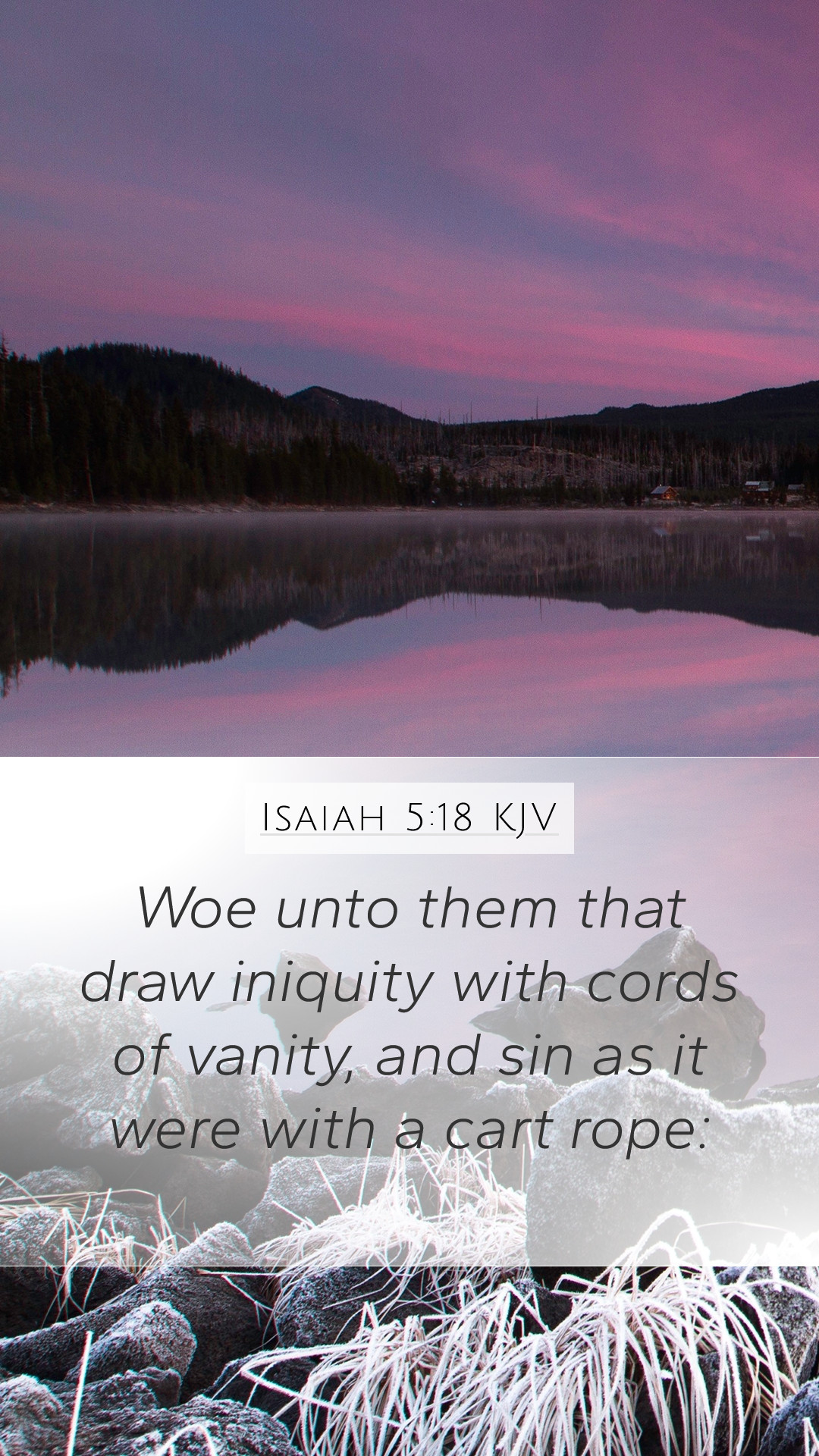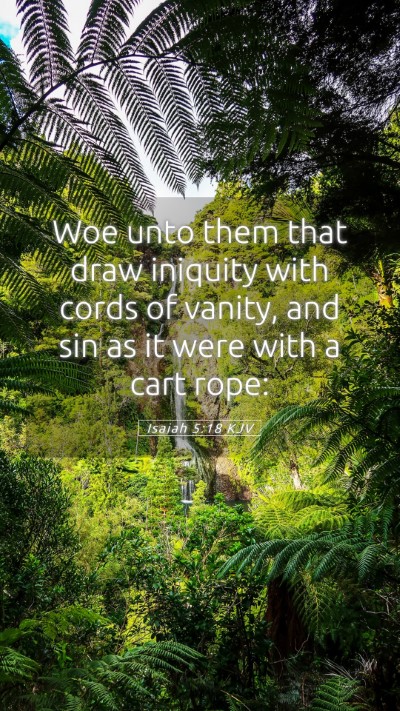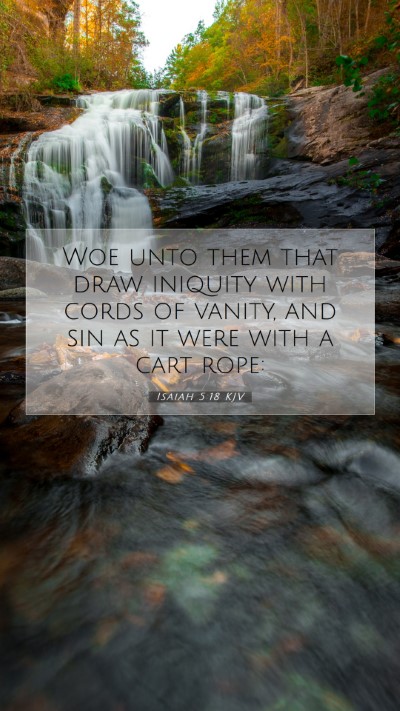Understanding Isaiah 5:18
Isaiah 5:18 serves as a profound reminder about the peril of straying from divine wisdom. The verse states:
"Woe unto them that draw iniquity with cords of vanity, and sin as it were with a cart rope."
Bible Verse Meanings and Interpretations
This verse highlights several key themes in Biblical teaching, particularly the dangers of sin and the moral decay of society. Below are insights from renowned public domain commentaries:
-
Matthew Henry:
Henry emphasizes the metaphoric language of the verse, illustrating how individuals are drawn into sin as if it were a tangible burden. He notes that the “cords of vanity” signify the fleeting and deceptive nature of sin, which lures people into bondage.
-
Albert Barnes:
Barnes provides a contextual analysis, indicating that the verse addresses the people of Israel who, despite knowing God, willingly pursue wickedness. He warns against the complacent attitude that leads to an acceptance of sin. The imagery of a "cart rope" connects the weight of sin to the burdens one willingly carries.
-
Adam Clarke:
Clarke's commentary focuses on the societal implications of this verse. He interprets the “woe” as a proclamation of judgment against those who engage in sinful practices without remorse. Clarke emphasizes the accountability individuals have towards their choices and the resulting spiritual consequences.
Understanding Scripture within Context
Understanding Isaiah 5:18 requires awareness of the historical context in which it was written. At the time, Israel faced moral and spiritual decline, and the prophet Isaiah was tasked with warning the people of the impending judgment due to their continued disobedience.
The use of vivid imagery speaks to the gravity of their situation, calling attention to the ease with which they became entangled in sin.
Key Themes in Isaiah 5:18
- The Seriousness of Sin: This verse paints a dire picture of how sin is not merely an act but a binding force that can pull individuals deeper into immorality.
- Divine Judgment: The repeated calls of “woe” signal impending consequences of continued disobedience to God’s commandments.
- Personal Responsibility: The imagery suggests that individuals have a part to play in either resisting or embracing the sinful inclinations that can lead to spiritual ruin.
Applying Isaiah 5:18 to Daily Life
In interpreting this verse, we can draw several lessons for contemporary life:
- Awareness of Temptation: Recognizing the subtle ways in which we can be led astray by societal norms is crucial. It encourages believers to scrutinize their choices.
- Embracing Accountability: Understanding that we are responsible for our actions encourages a proactive approach to spiritual health.
- Commitment to Righteousness: The verse serves as a call to align one’s life with biblical principles and to seek godly counsel and community.
Cross References
This verse can be related to several other Biblical passages that elaborate on similar themes, such as:
- Proverbs 14:12: "There is a way which seemeth right unto a man, but the end thereof are the ways of death."
- Jeremiah 2:19: "Thine own wickedness shall correct thee, and thy backslidings shall reprove thee."
- James 1:14-15: "But every man is tempted, when he is drawn away of his own lust, and enticed."
- Romans 7:24: "O wretched man that I am! who shall deliver me from the body of this death?"
Conclusion
Isaiah 5:18 serves both as a warning and a profound insight into human nature. Through the exegesis of this verse, we are reminded of the importance of accountability in our spiritual journey and the need to resist the allure of sin.
In studying this verse, one can appreciate the beauty of Scripture and the necessity for serious reflection on our moral and spiritual choices.


